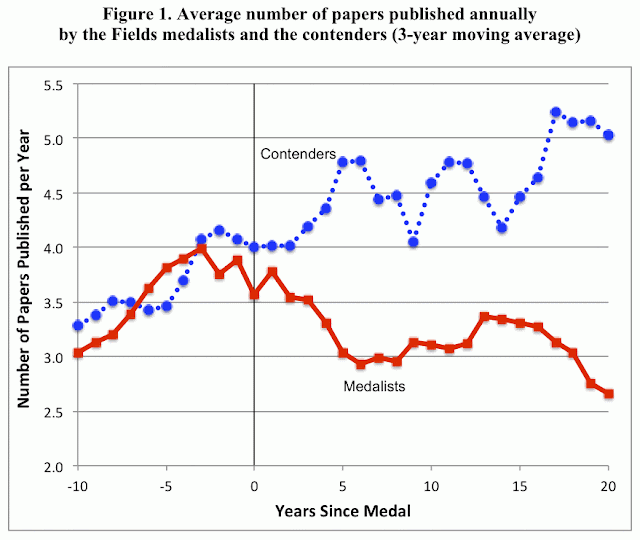Research productivity usually falls after scientists receive a Nobel Prize (Zuckerman, 1967), and that is because their obligations and activities change. It turns out that the same happens to mathematicians who win the Field Medal, although productivity declines for a different reason.
From a paper by George J. Borjas and Kirk B. Doran
The abstract Getting tenure might have a similar effect, on average, on risk taking and productivity.Knowledge generation is key to economic growth, and scientific prizes are designed to encourage it. But how does winning a prestigious prize affect future output? We compare the productivity of Fields medalists (winners of the top Mathematics prize) to that of similarly brilliant contenders. The two groups have similar publication rates until the award year, after which the winners’ productivity declines. The medalists begin to “play the field,” studying unusual topics at the expense of writing papers. This strategy is consistent with a model of human capital investments under uncertainty: the wealth effect of the prize encourages riskier knowledge investments.
HT: Jonas Holmstrom.


No comments:
Post a Comment